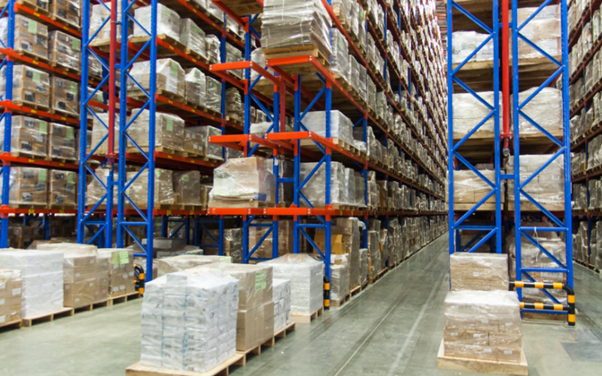Running a successful business today demands seamless logistics operations. Efficient logistics mean that products arrive on time, stock levels remain sufficient, and customers are satisfied with the service. One key factor that can greatly influence this process is having a dedicated warehouse for business. Warehousing services play an essential role in enhancing logistics efficiency, supporting the storage and distribution of goods, and reducing unnecessary delays.
Improved Inventory Management
Having a warehouse for business ensures better inventory control. Storing products in a central location allows businesses to easily track stock levels and replenishments, ensuring that products are always available when needed. A well-managed warehouse improves accuracy in inventory management, minimising overstock or stockout situations. Instead of relying on multiple storage points or outsourcing to third parties, warehousing services provide businesses with full control over their product flow.
By having a dedicated space for your inventory, businesses avoid unnecessary delays caused by frequent shipping back-and-forth between different locations. Keeping stock readily available allows quicker order fulfilment, positively impacting delivery times. Effective warehouse management enables better forecasting and planning for seasonal demand or unexpected spikes in orders, thereby streamlining logistics operations.
Reduced Shipping Costs and Time
A warehouse for business can also lead to significant savings in shipping costs. Centralising your storage with warehousing services cuts down on the number of shipping points, reducing overall transportation expenses. Rather than shipping products individually from various suppliers or manufacturers, a business can consolidate shipments in one location, optimising routes and lowering fuel costs.
Reducing delivery time is another advantage. Storing goods closer to key distribution hubs allows faster shipping times, improving customer satisfaction. In e-commerce, where customers expect rapid delivery, reducing shipping time is vital. Warehouse facilities that are strategically located near major transportation routes further enhance the speed and efficiency of logistics.
Enhanced Supply Chain Efficiency
The supply chain depends heavily on the efficient movement of goods from production to the consumer. Warehousing services ensure that the storage and management of goods are streamlined, allowing for uninterrupted supply chain operations. Keeping a warehouse for business helps synchronise logistics by enabling goods to flow smoothly through the different stages of the supply chain.
The ability to store goods in bulk also offers flexibility when dealing with fluctuations in supply or demand. If a supplier delays production, having stock already stored means that business operations remain unaffected. Similarly, a sudden surge in customer demand can be met with ease if sufficient stock is held in the warehouse. Thus, warehousing services contribute to more reliable and adaptable logistics.
Improved Order Fulfilment and Customer Satisfaction
Customer satisfaction is a top priority for any business, and efficient logistics play a crucial role in achieving this. A warehouse for business improves order fulfilment by speeding up the delivery process and reducing errors in shipping. Warehousing services facilitate quicker dispatch, helping to meet customer expectations regarding delivery times.
Having a streamlined logistics process results in fewer delays, fewer backorders, and faster returns processing, all of which lead to higher customer retention rates. The ability to consistently meet delivery deadlines translates into better reviews and repeat customers. Therefore, warehousing directly influences how well businesses manage customer expectations and satisfaction.
ALSO READ: 5 Reasons E-Commerce Sellers Should Outsource Fulfilment to a Third-Party Provider
Increased Scalability and Flexibility
Warehousing services provide businesses with room to grow and expand. As the company scales, the warehouse can adapt to store more stock, handle increased shipments, and accommodate higher volumes of products. This flexibility is invaluable for businesses with seasonal fluctuations, where stock levels may spike during certain times of the year.
A warehouse for business ensures that operations can expand without significant delays or logistical headaches. Expanding storage capacity by relying on external warehousing services provides a solution to growth without needing a new infrastructure investment. As businesses grow, having efficient warehouse management allows them to scale their logistics operations to match demand, ensuring consistent performance.
Compliance with Regulations and Safety Standards
Businesses must also comply with regulatory requirements, particularly those involved in handling perishable goods, chemicals, or high-value items. A professional warehousing service offers businesses access to specialised storage conditions that meet these standards.
Maintaining proper safety standards in storage and handling ensures that products remain in optimal condition in storage. This reduces the likelihood of damage or loss, leading to fewer insurance claims or compensations. A business warehouse ensures that goods are stored securely and in compliance with all relevant regulations.
Conclusion
Investing in a warehouse for business significantly impacts logistics efficiency. From improved inventory management and reduced shipping costs to enhanced customer satisfaction and supply chain flexibility, warehousing services are an essential aspect of any business logistics strategy. By optimising storage and distribution, businesses can streamline their operations, reduce costs, and scale effectively as they grow.
For businesses looking to enhance their logistics through warehousing services, contact Loft Logistics for tailored solutions that fit your unique business needs.








